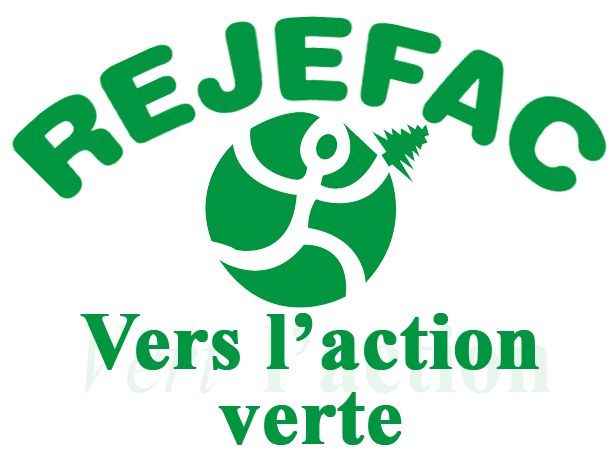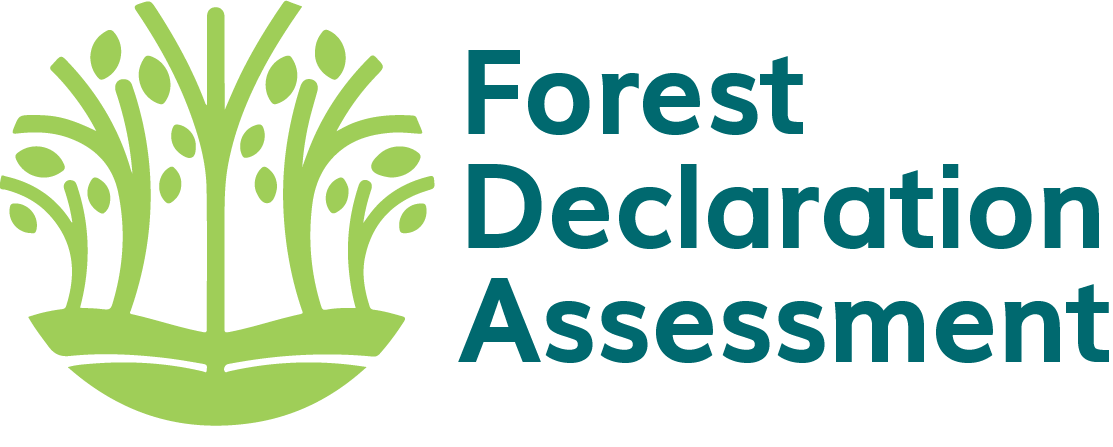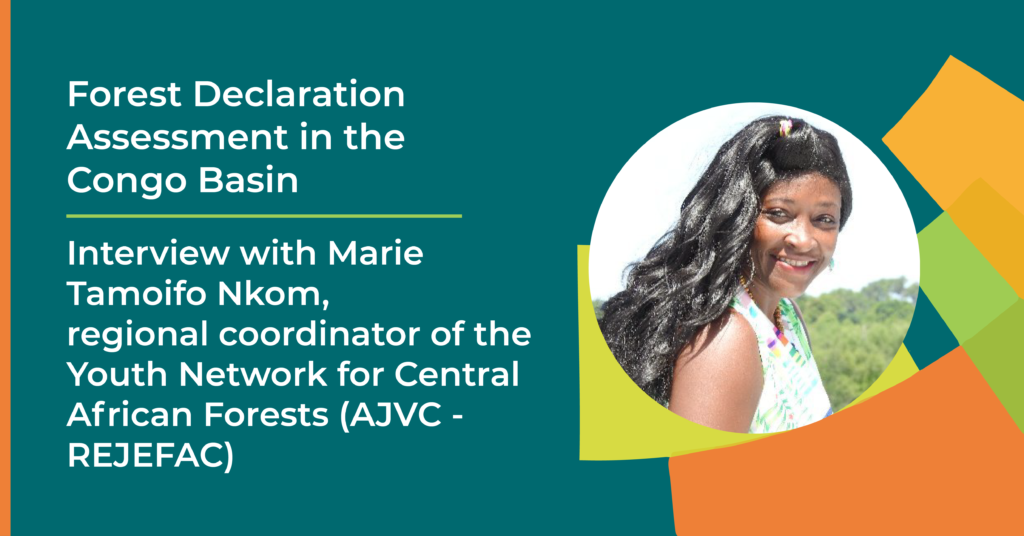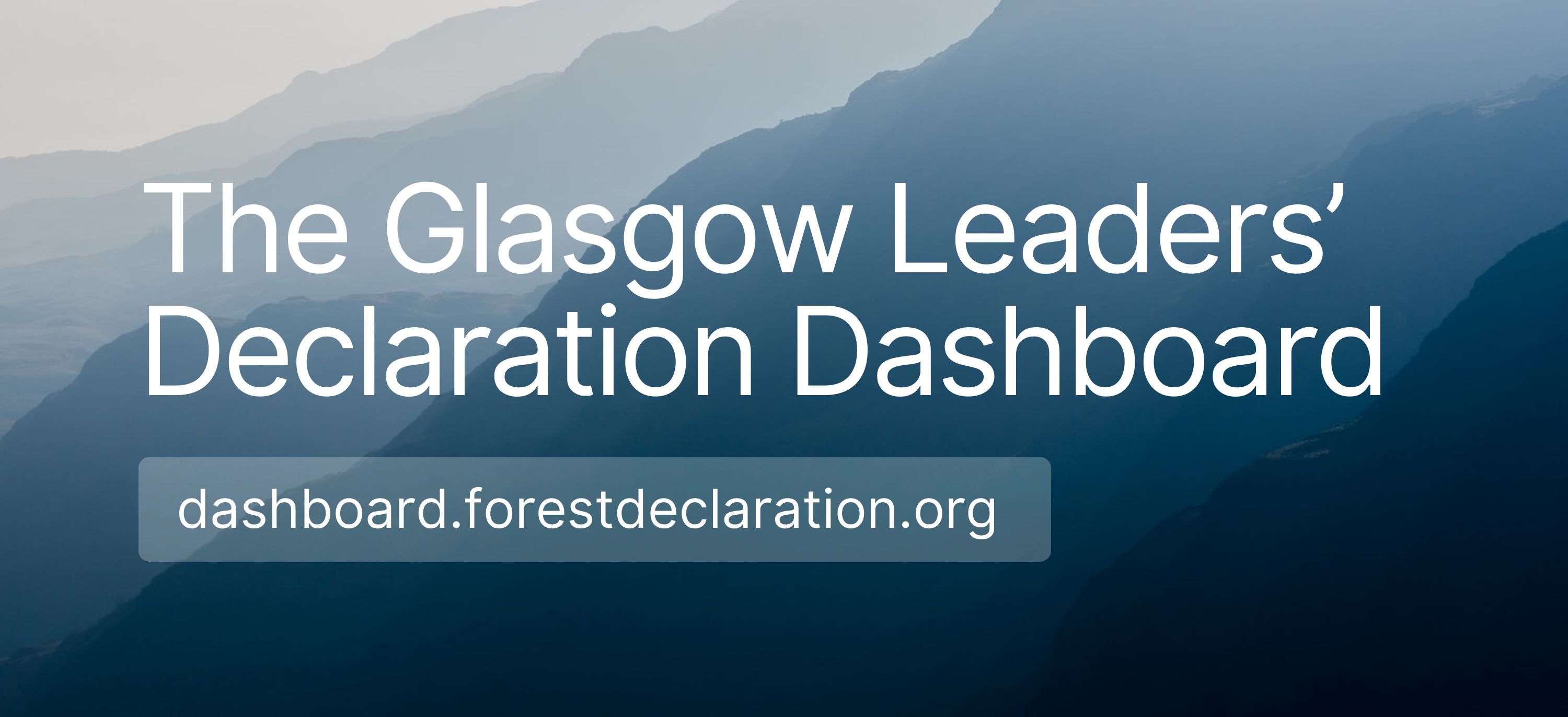The REJEFAC, or Réseau des Jeunes pour les Forêts d’Afrique centrale, is a network of young leaders from civil society that promote the inclusion of youth and gender perspectives within sustainable development discussions in Central Africa. AJVC is its branch in Cameroon.


Could you describe the work of the REJEFAC in Central Africa?
REJEFAC is a network of Organizations of Young Civil Society Leaders working to promote youth and gender issues within discussions and decisions on the sustainable management of natural resources, environmental protection, biodiversity conservation and integrated management of water resources. REJEFAC has branches in the ten member countries of COMIFAC: Burundi, Cameroon, Gabon, Equatorial Guinea, Central African Republic, Republic of Congo, Democratic Republic of Congo, Rwanda, Sao Tome & Principe, and Chad. The main mission of this network is to bring the concerns and positions of member organizations to the institutions and to build the capacity of groups of young leaders of the Congo Basin on concepts related to its missions.
The REJEFAC was created in 2006 on the sidelines of the consultative meeting of young leaders of Central Africa, as a follow-up to the recommendations of the France-Africa Summit and as a prelude to the Europe-Africa Summit. In 2008, the REJEFAC’s first constitutive general assembly was held in Douala, with the adoption of the fundamental texts and the election of the Bureau.
How does your work drive progress toward ending deforestation and restoring degraded lands by 2030?
Our network is represented by Country Focal Points who implement, with the support of the regional coordinators, different sub-regional or national activities of the network such as the fight against the effects of climate change and the promotion of renewable energies. It is a thematic network of CEFDHAC – the Conference on Dense and Moist Forest Ecosystems of Central Africa. REJEFAC’s strategic document defines its strategy of intervention and deployment of its activities for the period 2018-2025.
What do you believe is the biggest challenge for addressing deforestation and forest degradation in the Congo Basin?
Around the world, climate change is becoming visible and part of everyone's experience at both the collective and individual levels. This is especially true for people exposed to extreme weather events at the local level and whose livelihoods depend directly on land use, natural resources, and where slow and gradual climate trends are materializing, such as variations in precipitation and ecosystem compositions that no longer allow rural women and young entrepreneurs to control the seasons. Despite three decades of international attempts and negotiations to combat climate change and deforestation, the problems of increasing greenhouse gas concentrations in the atmosphere and the loss of biodiversity and ecosystems remain unchanged.
However, climate change is becoming one of the main drivers of new human-induced changes; for example, the increasing intensity and extent of forest fires around the world are adding significantly to direct human emissions and underscore the urgency of effective measures, access to fertile land and financing by non-state actors, and the importance of engaging youth, women and communities in the Congo Basin sub-region in finding climate solutions and creating green jobs and opportunities for the younger generation.
What was your experience working with the Forest Declaration Regional Assessment this year and what future collaboration opportunities do you see to reach 2030 forest goals?
Thank you to Climate Focus for the trust that was placed in national and local civil society organizations and relevant networks in the Congo Basin to do such important technical work. The methodology used allowed us to learn more about the state of the art and an opportunity to build the capacity of our REJEFAC members in the countries that participated in the data collection (identifying structures, institutions).
Very often, non-state stakeholders have very little knowledge of the commitments made by their states that participate in some of these international meetings, harmonize their state positions (ECCAS, COMIFAC, CBFP …) and this allows for a clear understanding of what is being done to respect these commitments to local and Indigenous communities and the limits of these actions. This study report clearly showed us the need to participate in the wide dissemination of information so that it reaches a larger majority of non-state stakeholders. All in all, a great experience and learning process. It is important to continue this work in the different communities and at the grassroots level in order to bring back the key messages from the affected populations to the grassroots.
What are your 3 messages to world leaders attending COP27?
- World states and leaders with their civil societies have demonstrated an international will to curb the problem in a sustainable way, and the formulation of commitments and promises is not new. It is important to change the paradigm and develop a bottom-up approach.
- It is important to align nationally determined contributions (NDCs) with national policies and development strategies of countries to contribute to the well-being of local and Indigenous populations.
- Focus on the young generation of Congo Basin leaders and women by integrating them into the various decision-making spaces in order to sustain the actions undertaken by the Congo Basin States upstream.
[FRENCH]
Pourriez-vous décrire le travail du Rejefac en Afrique centrale ?
Le REJEFAC est un réseau d’Organisations des jeunes leaders de la Société Civile d’appui à la jeunesse du bassin du Congo, qui œuvrent pour la promotion de la jeunesse et des questions du genre dans la gestion durable des ressources naturelles, la protection de l’environnement, la conservation de la biodiversité et la gestion intégrée des ressources en eaux. Le REJEFAC est présent dans les dix pays membres de la COMIFAC : Burundi, Cameroun, Gabon, Guinée Équatoriale, République Centrafricaine, République du Congo ; République Démocratique du Congo, Rwanda, Sao Tomé & Principe et Tchad. La principale mission de ce réseau est de porter les préoccupations et les positions des organisations membres auprès des institutions, ainsi que de renforcer les capacités des groupes de jeunes leaders du bassin du Congo sur les concepts en lien avec ses missions.
Le REJEFAC a été créé 2006 en marge de la rencontre consultative des jeunes leaders d’Afrique centrale, suite aux recommandations du Sommet France Afrique et en prélude au Sommet Europe Afrique. La première assemblée générale constitutive du Rejefac s’est tenue à Douala en 2008, avec adoption des textes fondamentaux et élection du Bureau.
Comment votre travail contribue-t-il à l’atteinte des objectifs de réduction de la déforestation et de la restauration des paysages forestiers ?
Notre réseau est représenté par des Points Focaux Pays qui mettent en œuvre, avec l’accompagnement de la coordination régionale, les différentes activités sous régionales ou nationales du réseau, la lutte contre les effets des changements climatiques et la promotion des énergies renouvelables. Il constitue un réseau thématique de la CEFDHAC - la Conférence sur les Écosystèmes forestiers d'Afrique Centrale. Le document stratégique du REJEFAC définit sa stratégie d’intervention et de déploiement de ses activités pour la période 2018 -2025.
Quel est selon vous le plus grand défi pour lutter contre la déforestation et la dégradation des paysages forestiers dans le bassin du Congo ?
Partout dans le monde, le changement climatique devient visible et fait partie de l'expérience vécue par tous tant au niveau collectif et individuel. C'est particulièrement le cas des personnes exposées à des phénomènes météorologiques extrêmes au niveau local et dont les moyens de subsistance dépendent directement de l'utilisation des terres, des ressources naturelles mais aussi des endroits où des tendances climatiques lentes et progressives se matérialisent, telles que les variations de précipitations et les compositions des écosystèmes qui ne permettent plus aux femmes et jeunes entrepreneurs ruraux de contrôler les saisons.
Malgré trois décennies de tentatives et de négociations internationales pour lutter contre le changement climatique et la déforestation, les problèmes liés à l'augmentation des concentrations de gaz à effet de serre dans l'atmosphère et à la perte de biodiversité et d'écosystèmes restent inchangés. En revanche, le changement climatique devient l'un des principaux moteurs de nouveaux changements induits par l’activité humaine ; par exemple, l'intensité et l'étendue croissante des incendies de forêt dans le monde s'ajoutent de manière significative aux émissions humaines directes et soulignent l'urgence de mesures efficaces, l’accès aux terres fertiles et financements par les acteurs non étatiques, et plus l’importance d’t plus l’importance d’engager les jeunes, femmes et communautés de la sous-région du Bassin du Congo à trouver des solutions climatiques et créer des emplois verts et opportunités pour les jeunes générations.
Quelle a été votre expérience au sein du Forest Declaration Assessment cette année et quelles opportunités de collaboration futures voyez-vous pour atteindre les objectifs forestiers 2030 ?
Merci à climate focus pour la confiance qui a été accordée aux OSC nationales et locales, et aux réseaux pertinents du bassin du Congo à faire un travail technique aussi important. La méthodologie utilisée nous a permis d’apprendre plus sur l’état des lieux et une occasion de renforcer les capacités de nos membres Rejefac dans les pays qui ont participé à la collecte de données (identifier les structures, institutions. Participer à la compilation des données…
Très souvent, les parties prenantes non étatiques ont très peu de connaissances des engagements pris par leurs États qui participent à certaines de ces réunions internationales, harmonisent leurs positions étatiques (CEEAC, COMIFAC, PFBC …) et cela permets une compréhension claire de ce qui est fait pour respecter ces engagements auprès des communautés locales et autochtones et des limites de ces actions. Ce rapport d’étude nous a montré clairement la nécessité de participer à la diffusion large des informations afin qu elles atteignent une plus grande majorité des parties prenantes non étatiques. En somme, une belle expérience et processus d’apprentissage. Il est important de continuer ce travail dans les différentes communautés et à la base afin de faire remonter les messages clés et phares des populations touchées à la base.
Quels sont vos 3 messages aux dirigeants participant à la COP27 ?
- Les États et leaders du Monde avec leurs société civile ont démontré une volonté internationale à endiguer le problème de manière pérenne, et la formulation des engagements et promesses n’est pas nouvelles, il est important de changer de paradigme et développer une approche bottom-up.
- Il est important d’aligner les contributions déterminées à l’échelle nationale (CDN), aux politiques nationales, stratégies de développement des pays afin de contribuer au bien-être des populations locales et autochtones.
- Miser sur la jeune génération de leaders du bassin du Congo et les femmes en les intégrant dans les divers espaces de prise de décision afin de pérenniser les actions entreprises par les États du Bassin du Congo en amont…



